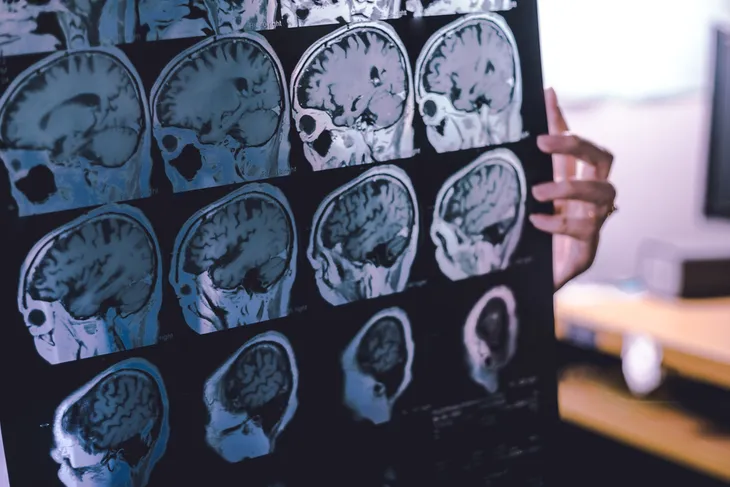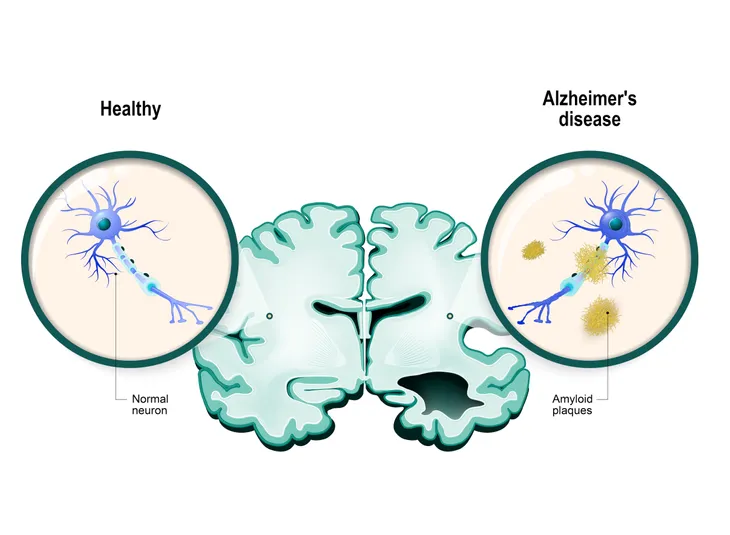Alzheimer’s is a terrible degenerative disease of the brain that strikes the elderly, but it’s not exclusive to seniors—early onset Alzheimer’s disease can strike those that are much younger. It is considered the worst form of dementia, which affects memory and other cognitive functions.
What’s worse is that this disease is progressive, and as it worsens, the patient loses their sense of environment and the ability to carry on conversations. Current numbers estimate that more than 5-million Americans are suffering from Alzheimer’s, with the vast majority older than 65. Here are 8 promising breakthroughs to mark Alzheimer’s Awareness Month in September…
Want senior content delivered straight to your inbox? Sign up for our exclusive email list and receive articles and news on diet & nutrition, fitness, and mental health dedicated specifically to our senior audience!
A Pill to Halt Progress?
The year 2016 has been an exciting year for Alzheimer’s research. In July, scientists announced the success of a pill that can stop Alzheimer’s in its tracks when taken twice daily. An article in The Telegraph cited a trial study that showed mental decline in participants had halted for 18 months during treatment.
The drug is called LMTX and it allowed the patients to continue performing everyday tasks with no marked decline in brain function, adds the source. Brain atrophy (shrinkage) is also slowed by the drug, which differs from results from other medications. The studies of this potential treatment continue.
Finding the Trigger
Did we mention 2016 has been a good news year for those affected by Alzheimer’s? In May, scientific findings were published by Massachusetts General Hospital that explain a protein called beta-amyloid has been isolated that may cause Alzheimer’s.
The article notes this protein clumps in the brain as plaque, which is one of the ways this diagnosis becomes possible. The fact that this protein may be essential to fighting off major infections as well as contributing to Alzheimer’s could make it tricky to handle. “Therapies aimed at dialing down but not wiping out beta-amyloid in the brain might be a better strategy,” notes the source. Another ScienceAlert.com article from around the same time talks of an injection of a protein called IL-33 that can help clear out this plaque (in mice so far at least).
Identifying a Link
The hormone created by the pancreas to allow the body to use sugar from carbohydrates and turn it into energy is usually associated with diabetes, as diabetics lack the hormone that regulates blood sugar. While that breakthrough was huge in improving quality of life for diabetics, the hormone may also play a role in Alzheimer’s, according to previous research.
An article in Reader’s Digest notes the hormone that regulates glucose in the blood is a key transmitter of glucose (sugar) into the brain’s neurons, and that glucose is essential to proper brain function. A trial study involved administering a nasal spray to 60-people with mild to moderate forms of Alzheimer’s over 21 days. Those who received the highest doses retained the most information, according to the source.
Untangling the Mystery
Tau tangles, or neurofibrillary tangles as they’re also called, have previously been identified as a disease trigger. These microscopic tangles in the brain can disrupt nutrients and other essential elements from passing along proper pathways—these “tracks” will then eventually fall apart and disintegrate and cells will die, according to the Alzheimer’s Association.
The protein called tau is essential in maintaining these pathways or tracts, adds the source. While these tangles have been identified in people with Alzheimer’s, more research is needed to understand how tangles and the disease are related. However, ScienceDaily.com has a pretty extensive explanation about how these tangles can occur to begin with.
It Could be in the Genes
A 2015 article in Science magazine talks about an “anti-Alzheimer’s gene” that could be the reason humans can function normally beyond childbearing years. This gene, called CD33, has two variants—one that could raise the risk of the disease and the other that could protect against it, according to the article.
The protective type of this gene could actually be a protector of protein clumps in the brain associated with Alzheimer’s. This gene may actually be fairly new in human evolution, as the “damaging” version of the gene is almost equally present in humans and chimpanzees (our closest living relatives) while the good version is four times higher in humans.
Early Onset Could be Genetic
Healthline said that three genes have been identified in cases of early onset Alzheimer’s, which can occur as early as your 30’s. These genes include APP, PSEN-1 and PSEN-2. While these probably don’t mean much to you unless you’re a scientist, these genes can help contribute to the formation of amyloid plaques in the brain, which we discussed earlier.
The source notes these particular genes are only responsible for the rare cases of the disease that can develop in your early 30’s, and not the more common form of the disease. It notes that about half of the people with a parent that has early onset Alzheimer’s will “likely” develop the disease. The early version of the disease can also be traced to an aunt, uncle or grandparent.
Heart Health Could be Linked
This disease isn’t all in your head, notes Reader’s Digest. The source cites a study by Vanderbilt University Medical Center that traced patients’ cardiac function and determined that those with less than optimal heart health “were two to three times more likely to develop significant memory loss over a follow-up period of up to 11 years.”
This could be attributed to the fact that while the brain only accounts for about 2-percent of overall body weight, it demands 15-percent of blood leaving the heart, according to the source. As vessels age, the delivery of blood to the brain can be affected and affect its function.
Existing Drugs May be Effective
While new treatments are being studied, as mentioned before, existing medications may be effective in fighting Alzheimer’s, explains the National Institutes of Health website. A drug called saracatinib originally developed for cancer patients can actually help Alzheimer’s sufferers.
Scientists showed that the existing treatment “restores memory loss and reverses brain problems in mouse models of Alzheimer’s,” and that clinical trials are continuing as of 2015. The cancer treatment targets the Fyn protein that contributes to clustering in the brain, notes the source. This breakthrough could speed up trials of the drug for Alzheimer’s treatment, which can typically take up to 10-years, says the institutes.











